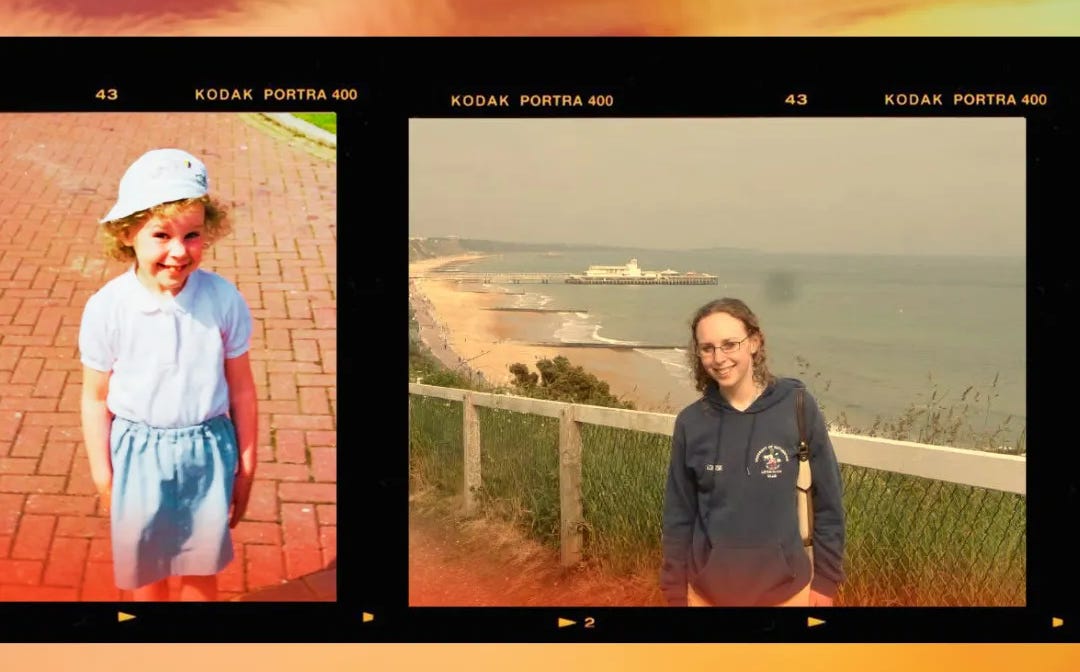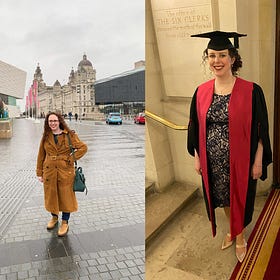Nineteen years ago, on a bright spring day – one of those with just a hint of chill in the air so you need a coat, but also wish you’d remembered your sunglasses – I called my Mum from the foyer of the medical school. The wide open space was fizzing with the excited chatter of two hundred-some of my classmates, intermittently quieted by a moment of concern for one who pushed through the crowd, furrowed brow and threatened tear a tacit shield from awkward attempts at consolation.
‘Mum, I’m a doctor.’ I managed a fraction of the nonchalance I was aiming for as I finally spoke the words I’d rehearsed in my head since I was five and the world’s greatest fan of Yorkshire TV’s homage to the Leeds hospital “Jimmy’s” (the theme tune remains implanted in my brain to this day, apparently possessing ear-worm credentials to rival Disney’s ‘It’s a small, small world1’).
Going to medical school, university even, wasn’t generally expected for young people growing up in my northern town in the 1980s/90s. Careers advice at school had amounted to ‘you’ll need 5 GCSE’s at A*-C’; a feat that was celebrated with a photograph in the Barnsley Chronicle when achieved by 27% of my year group as we produced the school’s best ever results day. A daughter of the miners’ strike, my family were never what most would consider ‘well-off’, but I was more fortunate than many of my peers. I had a happy childhood. Save for the strike year, my parents were able to work, we had our health, and they never let me doubt that I really could become anything I wanted to, if only I worked hard for it. Nevertheless, university provided an education far beyond the academic: the culture shock provided a steep learning curve, one that I still haven’t fully ascended. As I read only this week2, there remains significant accent bias in the UK, and though there has been some ‘taming’ by my years spent in mandatory hospital rotations across the regions over the years, and despite having not resided in God’s own county for more than half my life now, I persist in my identity as a Yorkshire woman, audibly and otherwise.
On that results day, the day I saw my name listed on the board outside the Faculty of Medicine main office (affectionately known as ‘Fac Off’), alongside my peers from across the regions of the UK and (in smaller number) the world, our accents, our backgrounds, our skin colour, our sex, all became irrelevant. We were doctors! My goodness, I was proud to be on that list. Not as proud as my Mum, though.

It's difficult to know where to begin to explain my transition from the elated twenty-three-year-old I was on that day, full of the infinite possibility of the life that awaited me, to the (much) older, somewhat life-worn woman I am today. In this reality, I am an unemployed Mum of two, my days filled with school runs and laundry, worries about paying the bills, and the minutiae of the every-day. The truth is, that being a doctor was among the great privileges of my life, with parenthood the only worthy comparator in my library of experiences. Every time. Every single time that a parent kissed their child at the door of the operating theatre, placing in my hands not only the wellbeing, but the very life of their most precious love, their child, was a sucker punch to my heart. It may have been my every day, but this most profound trust was never considered routine, never underestimated, never unappreciated. Each procedure I performed; each decision I made; each course of treatment I proposed, I did so with the reverence that I would hope for my child, should I be the parent sending them into another surgeon’s operating room with a kiss.
There was much that was difficult about my work, of course. Working at the very edge of the precipice where life meets death, especially for children, is… heavy. The weight of responsibility I carried with me wasn’t a jacket that could be picked up and worn for the duration of a shift then shrugged off or passed on to a colleague at the end of the day with the on-call bleep. We all have our coping mechanisms. For me, that was (too intermittently) exercise, time debriefing and decompressing with current or former colleagues who ‘got it’, and (too often) cake.
The reward, though. The reward of seeing a child, admitted from the door of death after enduring unimaginable horror, neglect and pain at the hands of those who should have loved him the most, smile as he takes his first tentative steps following three operations and a month in hospital: a prize beyond comparison. The hug from a three-year-old who ran the length of the ward when she saw me enter - such was her delight to see her ‘favourite doctor’ (the only one she allowed to take her blood for testing!) - a memory I still treasure a decade and a half later.
I loved being a doctor. I will forever be grateful for the experiences that I was afforded in my work as a paediatric surgeon. I was good at it, too, I think. I was generally well liked by my patients and their families (and I looked after probably north of 120,0003 of them over the course of my career). I listened, I applied knowledge, I was skilled, and I made a difference, even saved lives. I did work that I can be proud of. The trouble is, and it took a long time to come to terms with this, being a doctor wasn’t good for me.
I wrote a little about my decision to leave medicine in my recent post ‘Putting down my scalpel’, here. I will continue this letter in part two, next week, but I’m always happy to answer any questions in the meantime either in the comments or in my subscriber chat space.
With love, Louise x
Part Two is now also available to read here:
Sorry
Approximation based on an estimated average of 30 patients seen per day, five days per week, for 45 weeks per year, over 18 years






Thank you, Louise, for sharing the experience of being a woman surgeon so eloquently, lovingly, and from the vulnerable heart-space.
I am so grateful you wrote this as never in my wildest dreams could I have imagined that I would meet another ME here, amongst creatives and authentics - a woman who, like me, had the privilege of working as a surgeon and more recently, lay down her scalpel.
I am deeply grateful to the Substack-verse for connecting us and am feeling inspired by you - to write my own piece about ending my journey as a plastic and reconstructive surgeon and shifting to SOUL SURGEON.
Sending you love, my surgical soul sister💗✨🙏Write on!
This is beautifully written. It must have been an incredibly difficult decision to leave after all those years of hard work, sacrifice, obstacles and experiences. What a brave woman you are - and even braver for starting from scratch now and sharing your story. I am sure your two children will be very proud when they read these words one day (as well as former patients and their parents!).